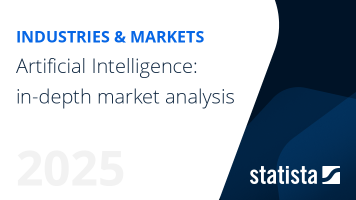Autonomous & Sensor Technology - Turkey
Turkey- The market size in the Autonomous & Sensor Technology market is projected to reach US$241.90m in 2024.
- The market size is expected to show an annual growth rate (CAGR 2024-2030) of 13.75%, resulting in a market volume of US$524.00m by 2030.
- In global comparison, the largest market size will be United States (US$6.80bn in 2024).
Definition:
Autonomous and sensor technology refers to the combination of advanced systems and devices that enable machines and vehicles to operate and make decisions independently and without human intervention. Autonomous technology encompasses the areas of perception, decision-making, and control systems that make it possible for machines to autonomously navigate, interact, and respond to their surroundings. Sensors, on the other hand, are devices that detect and measure physical or environmental variables such as temperature, pressure, motion, and light; these variables provide crucial data inputs for autonomous systems to perceive and understand their environments. By leveraging sensor data and autonomous capabilities, these technologies enable applications such as self-driving cars, industrial automation, robotics, and smart infrastructure.
Additional Information:
The market comprises two key performance indicators: market sizes and market sizes by industry. Market sizes are generated by the funding amount of Autonomous and Sensor Technology companies. Key players of the market include companies such as Nvidia, Waymo, and Velodyne Lidar.
For more information on the data displayed, use the info button right next to the boxes.
In-Scope
- Technologies that enable machines and devices to function autonomously, such as autonomous vehicles, drones, and robotics
- Sensors and related hardware that gather data from the environment, such as LiDAR, radar, and cameras.
Out-Of-Scope
- Technologies that do not involve autonomous or sensor-based functionality, such as traditional software applications or physical goods
- Products and services that do not use autonomous or sensor-based technology, such as consumer electronics and home appliances.








